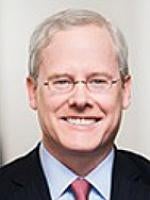SHIRE DEV., LLC v. WATSON PHARM., INC.: Feb. 10, 2017. Before Prost, Taranto, and Hughes.
Takeaways:
-
An ANDA product that does not satisfy the Markush group requirements of the claim does not infringe.
-
The phrases “consisting of” and “consists of” in a Markush claim will create a “very strong presumption” that the claim element is “closed” and therefore, “exclude[s] any elements, steps, or ingredients not specified in the claim.”
Procedural posture:
An ANDA filer appealed a district court’s infringement finding. The Federal Circuit reversed the district court, and remanded with instructions to enter a judgment of non-infringement.
Synopsis:
-
Markush Group: An ANDA filer appealed a district court’s judgment of infringement of asserted claims of a patent directed to a controlled-release oral pharmaceutical composition of mesalamine used to treat inflammatory bowel disease. The asserted claims used the terms “consisting of” and “consists of” to characterize the matrix, and “consisting of” to define Markush groups. The Federal Circuit concluded that these phrases in the claim language created a “very strong presumption” that the claim element is “closed” and therefore, “exclude[s] any elements, steps, or ingredients not specified in the claim.” The Federal Circuit further concluded that the component outside of the Markush group – the lipophilic magnesium stearate in the hyropholic outer matrix – retains its lipophilic character in the extragranual space, and accordingly, the magnesium stearate “structurally and functionally relate[d] to the [accused] invention, and its presence in the outer matrix violate[d] the ‘consisting of’ requirement’ in [the disputed] claim.” The Federal Circuit rejected the patentee’s argument that the magnesium stearate in the accused product was unrelated to the invention because it was not sufficiently lipophilic to render the outer matrix lipophilic. The Court explained that “related” components are not only those that advance or are intended to advance a Markush group’s allegedly inventive elements. The Court declined to impose such a requirement, finding that doing so would “in effect equate the scope of a Markush group’s ‘consisting of’ language with either ‘comprising’ or ‘consisting essentially of’ language.” Unlike the term, “consisting of,” which excludes unspecified elements, the terms, “comprising” and “consisting essentially of,” do not exclude unrecited elements or method steps, and permit inclusion of components not listed in the claim, provided they do not materially affect the basic and novel properties of the invention. The Federal Circuit also rejected the patentee’s argument that the asserted claim nonetheless covers products with magnesium stearate because the patent includes examples disclosing magnesium stearate in the outer matrix. The Federal Circuit explained that even if the patentee “is correct about the content of the examples,” the patentee still had not “overcome the exceptionally strong presumption” that Markush groups are closed.






 />i
/>i
